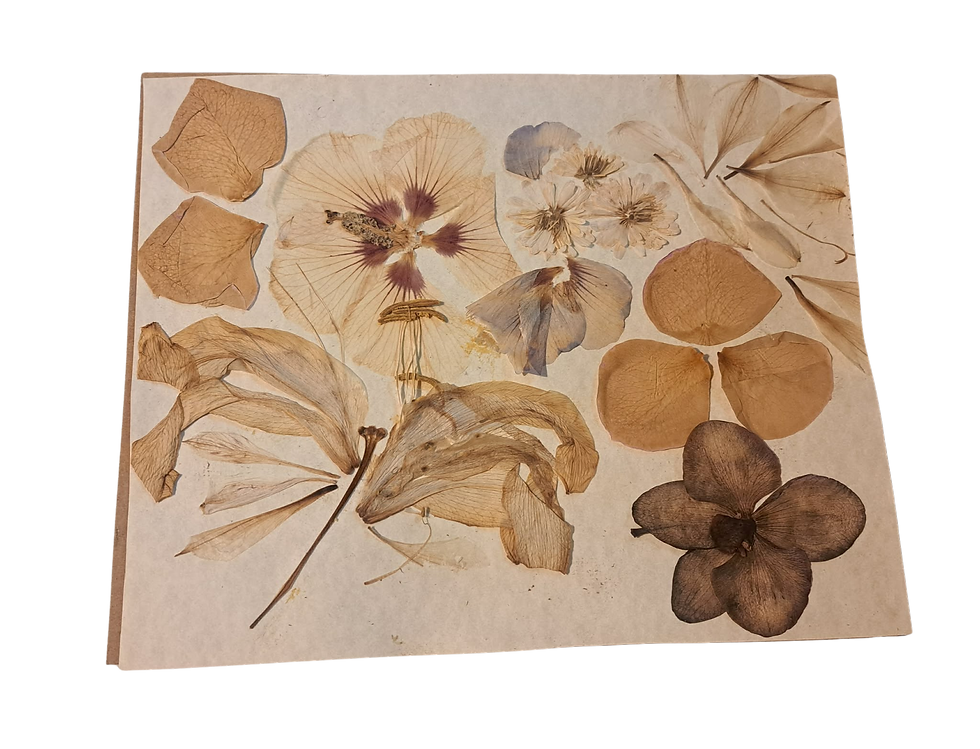GOLDENROD } the sway that welcomes autumn
- Sep 26, 2018
- 2 min read
Updated: Sep 23, 2025


The Latin name- Solidago, is from Solidus, “whole”, and ago “to make”- to make whole or cure, reflecting its medicinal use.
Herbal Properties of Goldenrod
Actions are targeting the urinary and respiratory systems.
Antiseptic / antifungal / antimicrobial - effective at flushing yeast overgrowth, like candida and thrush.
Diuretic - promotes urine flow and helps to flush out the urinary tract.
Anti-inflammatory - wound healing/burns (as a poultice), treatment of inflamed joints, skin irritation, and systemic inflammation.
Anticatarrhal / decongestant - used to help reduce mucus buildup and congestion in the respiratory system, especially in the form of allergies, sinusitis, and head colds.
Mild diaphoretic - which can help to increase warmth in the body, aid to sweat out fevers, and cool the body.
Carminative - which helps to move digestion along with a slightly bitter flavor, thus alleviating gas, bloating, and digestive complaints.
GOLDENROD USES
Often mistaken as the cause of seasonal allergies, goldenrod is actually not to blame—ragweed is the likely culprit! Goldenrod can be harvested to help prevent seasonal allergies. Traditionally, it was used before the spring allergy season because it naturally contains quercetin.
Effective at flushing/cleaning the kidneys and bladder. Goldenrod tea is a good choice for a urinary tract infection, bladder and kidney stones, and to cleanse the system.
Treatment of cold and flu due to its diuretic, warming, and decongestant action.
Supports digestion; the herbal tea balances stomach acids/intestinal membranes.

Tips for Growing and Harvesting Goldenrod
Cut off the yellow flowering tops and hang them upside down (or lay them flat) in a dry, well-ventilated area until they are dry.
When harvesting, do not take more than 25% of each goldenrod patch to allow it to recover and reseed for the following year.
Consider growing goldenrod shoots at the back of your garden since they can reach a height of about 5 feet. If goldenrod does not naturally seed in your garden, you can harvest a shoot from your neighborhood, dry it, and plant it (the flower turns to seed) in a sunny spot in your garden.

How to use Goldenrod:
I enjoy using goldenrod by drying its flowers and leaves to incorporate into my tea blends. I like to include other flavorful plants such as peppermint, spearmint, rosemary, thyme, sage, rooibos, and black or green tea.
When infused into an oil for topical use, goldenrod can be incorporated into an anti-inflammatory balm or cream for sore joints and skin irritations.
Transformed into a tincture through alcohol extraction, it is used for seasonal allergies and to enhance the immune system.

What do you think?
Samantha
DISCLAIMER: Please note the NIH herbal encyclopedia is created to share the herbal benefits and notes through personal experience working with plants in the NIH garden and in the wild. Herbal knowledge shared here is referenced by various herbal texts in the NIH library. Any information gathered from our herbal blog posts should be utilized at your own risk. If you have medical conditions, are taking medication or are unsure of your health diagnosis, please speak with a physician or medical professional about the use of herbs.

.png)


Comments